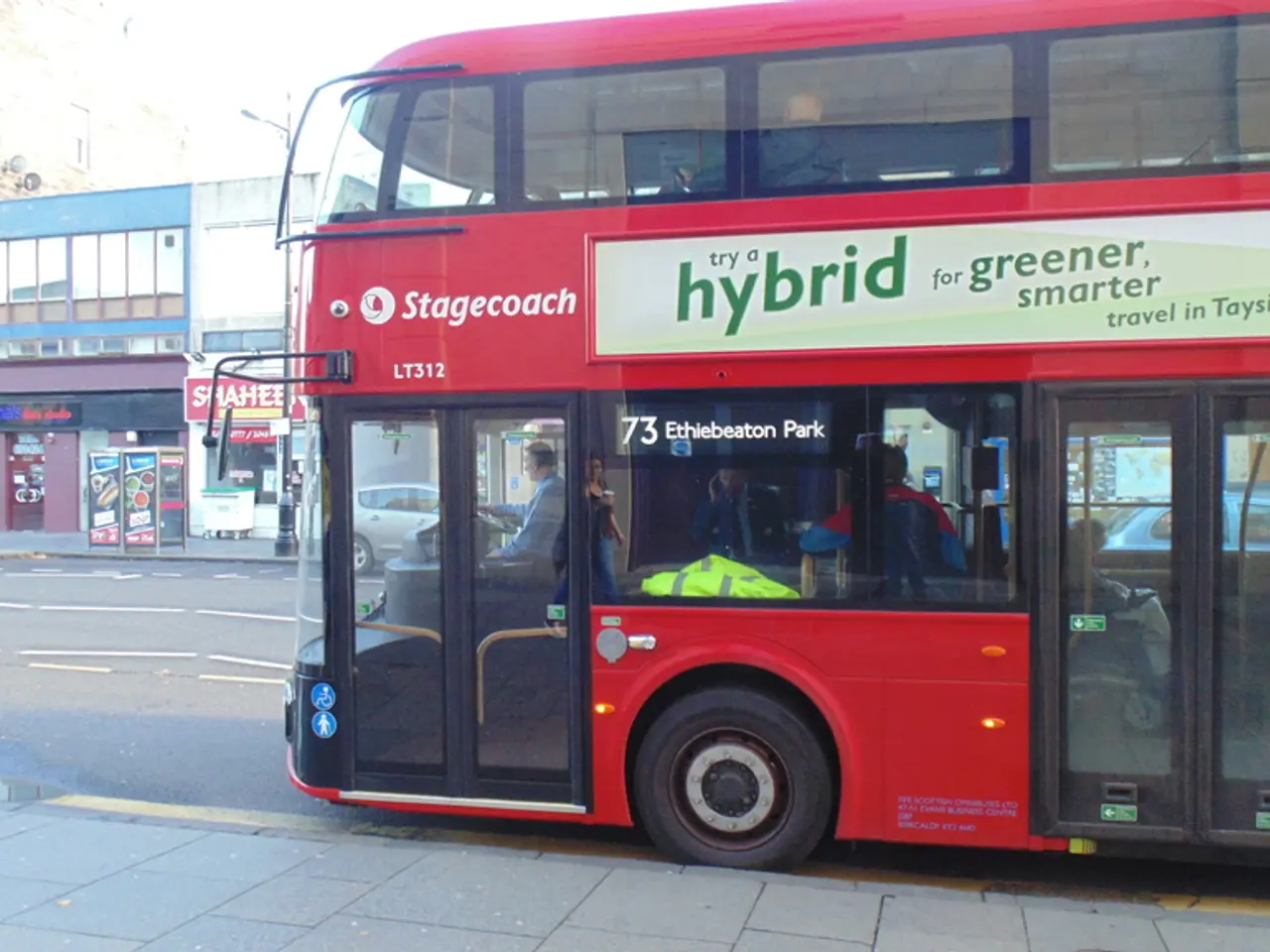Employees in the United Arab Emirates' private sector are advocating for a shift towards hybrid work as temperatures soar above 51 degrees Celsius.
In the sweltering heat of the UAE, temperatures soaring above 51°C during August, the Al Mirzam season brings dry heatwaves and scorching temperatures that are expected to last until August 10 [1]. Amidst these challenging conditions, residents like Indian expat Sara (name changed on request) face a challenging commute to work due to the extreme heat and reliance on public transportation.
To combat the heat, the UAE Ministry of Health and Prevention advises residents to wear breathable clothing and stay hydrated during the summer [2]. Employers, too, are taking steps to protect their employees. According to the Ministry of Human Resources and Emiratisation (MOHRE), there is an Occupational Heat Stress Prevention Policy that prohibits outdoor work under direct sunlight from 12:30 pm to 3:00 pm between June 15 and September 15 to reduce exposure to peak heat [3]. Employers are also urged to provide adequate protective measures such as shaded rest areas, ventilation, cold drinking water, and heat stress training [1][3].
Employees can also take measures to stay cool and healthy during extreme heat. Recommended strategies include staying hydrated by drinking plenty of water and avoiding alcohol and caffeine which can increase dehydration [1][2]. Wearing lightweight, loose-fitting clothing to allow better air circulation and reduce body heat [2] is also essential. Taking regular breaks in shaded or air-conditioned areas to avoid prolonged sun exposure and heat exhaustion [1][2] is crucial. Recognizing early symptoms of heat stress such as dizziness, headache, confusion, and fatigue, and seeking medical help promptly [1][2] is vital. Lastly, avoiding outdoor activities during peak heat hours, preferring morning or evening times when temperatures are lower [2][3], can help beat the heat.
Dubai, in particular, offers flexible working hours for government employees during the summer months. Dubai announced flexible working hours from July 1 until September 12. The first group works eight hours from Monday to Thursday and enjoys Friday as a full holiday. The second group works seven hours from Monday to Thursday and 4.5 hours on Friday [4]. Some private companies, like TishTash Communications, offer flexible working models and a "work from anywhere" option [5].
Natasha Hatherall, Founder and CEO of TishTash Communications, advocates for flexibility and hybrid working models. However, she believes that the hot summer is a reality that people who move to the UAE choose and moving the entire workforce to work from home is not the answer [6]. Filipino Socelle Fuentes, a resident of Dubai, has called for more flexible work initiatives for private sector employees during peak summer conditions, suggesting a flexible work-from-home policy or allowing employees to work from home one to two days a week during the summer months [7].
Sara praises Dubai for being a land of opportunities but hopes for wider acceptance of hybrid work models during extreme periods. She believes that recognizing the struggle and enabling flexible work options would improve productivity and demonstrate empathy and inclusivity [8]. Residents are advised to avoid peak daytime heat to prevent fatigue and heat stroke. Refreshing fluids like anise, mint, hibiscus, and green tea are recommended for hydration [2].
Urban planning and infrastructure improvements, such as increasing greenery, cool roofs, and improving airflow, can help mitigate urban heat effects, supporting long-term resilience to extreme temperatures [2]. Employers also play a crucial role by conducting annual heat stress awareness training, providing medical check-ups, and collaborating in risk assessments tailored to employees' work conditions [1][3].
In summary, the UAE’s approach combines regulatory protections, workplace accommodations, personal preventive actions, and public awareness to safeguard workers' health during the extreme summer heat. The introduction of flexible working hours and the advocacy for hybrid work models demonstrate the UAE's commitment to the wellbeing of its residents and workers.
- In the unusually hot summer of the UAE, residents like Sara, an Indian expat, face a challenging commute due to the relentless heat and dependence on public transportation.
- To cope with the heat, the UAE Ministry of Health and Prevention recommends wearing breathable clothing, staying hydrated, and taking regular breaks in shaded or air-conditioned areas to prevent heat exhaustion.
- Employers in the UAE, such as the Dubai government and TishTash Communications, are implementing measures like flexible working hours, heat stress training, and providing protective measures to ensure employee health and wellness during the intense heat.
- Recognizing the challenges posed by the extreme heat, some residents advocate for more flexible work initiatives, like a work-from-home policy or remote work options, to improve productivity and worker wellbeing.




